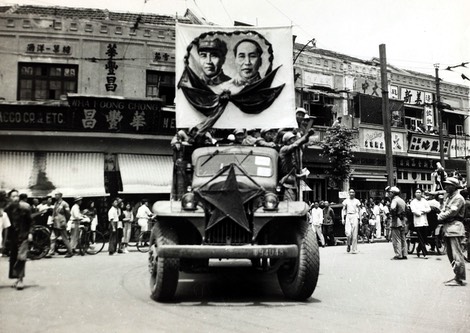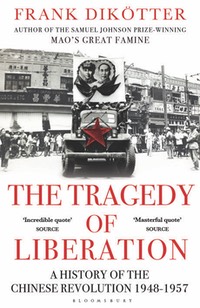1. This is the first comprehensive history of the foundation years of the PRC, an era which is essential to understand the current regime in Beijing.
2. Often protrayed as a 'Golden Age' before the advent of such catastrophes as Mao’s Great Famine (1958-1962) and the Cultural Revolution (1966-1976), this book uses a wealth of newly opened archives to show that the first years of the regime were an era of 'systematic violence and calculated terror'.
3. Massive support from the Soviet Union, which invaded Manchuria in 1945, determined the outcome of the civil war between the communists and the nationalists from 1946 to 1949.
4. Up to two million people were killed during land distribution from 1947 to 1952, and the victims were often ordinary farmers rather than 'landlords'. Stalin had used the police to liquidate 'rich farmers' in the Soviet Union, but Mao forced ordinary villagers to denounce each other. Some victims were buried alive, tied up and dismembered, shot or throttled to death. Some children were slaughtered as 'little landlords'.
5. During a reign of terror to eliminate real or imagined opponents of the regime, Mao Zedong set an official killing quota between 1950 and 1952. It ranged from 1 to 3 per thousand of the total population: 'close to two million people were murdered, sometimes during public rallies in stadiums, but more often than not away from the public eye, in forests, ravines, besides rivers, alone or in batches.'
6. The new regime came to power with promises of peace but entered the Korean War less than a year after 'liberation'. Up to three million people were sent to fight in Korea, and the war claimed hundreds of thousands of lives. It also dealt a devastating blow to the economy, as everywhere poor farmers were compelled to make 'voluntary contributions', sometimes up to a third of the entire crop.
7. Agricultural collectivisation in the countryside started less than a year after land distribution, and already by 1953 farmers lost their land while millions of people went hungry.
8. Thought reform started immediately after 1949, and almost everybody, even supporters of the regime, were asked to write confessions, denounce their friends and answer queries about their political reliability. One victim called it a 'carefully cultivated Auschwitz of the mind'.
9. By 1957 virtually every promise made by the communists had been broken, and the basic freedoms of speech, movement, association, belief and trade were eliminated.

